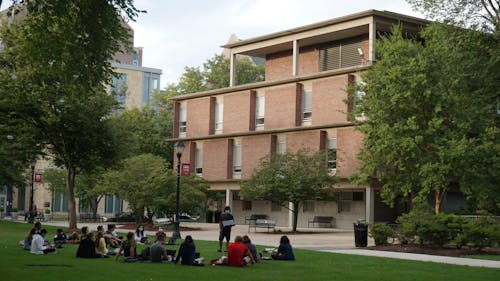U. committee announces art, grant, award programs focusing on community inclusion

The Committee to Advance Our Common Purposes (CACP) is launching a new initiative in the aim of forwarding an environment of inclusion and belonging on campus, according to a University-wide email.
The CACP Beloved Community Initiative will last for a year and involve three parts: an arts project, a grant program and an awards program, according to the email sent by Vice Chancellor of Interprofessional Programs at Rutgers Biomedical and Health Sciences Denise V. Rodgers, Professor of Professional Practice at Edward J. Bloustein School of Planning and Public Policy Ronald Quincy and Senior Vice President for Equity Enobong (Anna) Branch.
Starting in February, the arts project will call for works such as visual artwork, poetry, short videos and essays that illustrate what a “beloved community” looks like at Rutgers, according to the email.
The grant project will fund events proposed by Rutgers community members that forward the initiative’s aim, including panel discussions, performance art, such as plays and music, and dance programs, according to the email.
The CACP will award approximately 20 grants between $500 and $1,000 each by Nov. 29, according to the email. Grant applications will be open from Oct. 4 to Oct. 29, and each grant must be used by May 15 next year.
The awards program will recognize faculty, staff and students who are considered to best represent the CACP’s mission, according to the email. Nominations will begin in February.
All award and art project winners will be announced in a celebration on April 20, according to the email.
More details about the initiative will be posted on the CACP’s website.
“We look forward to your contributions in this next phase of our journey to create a beloved community, and we commit to working to advance efforts that will make the shared definition we co-create a part of the university culture that serves as a foundation for inclusion and belonging,” Rodgers, Quincy and Branch said.



